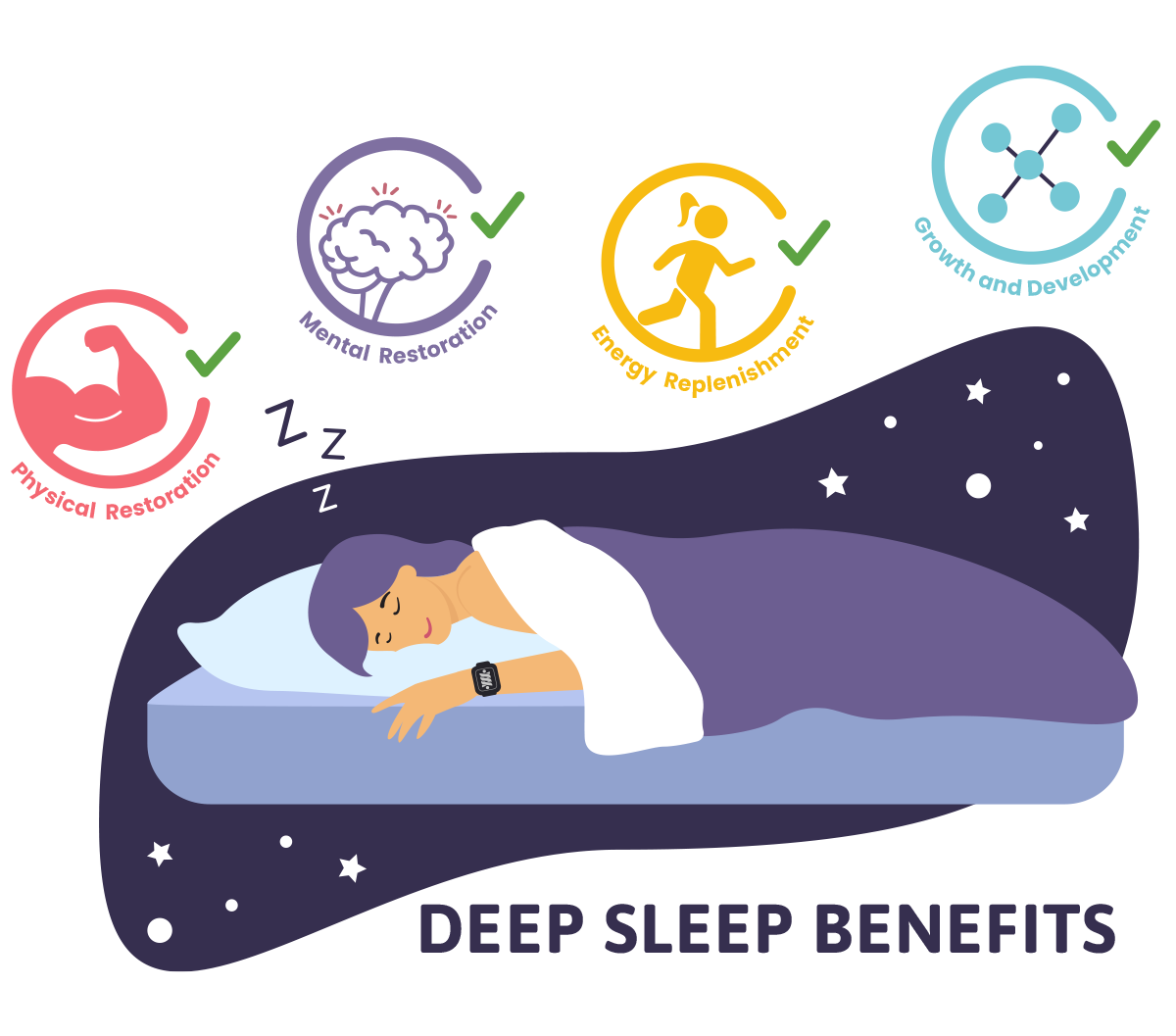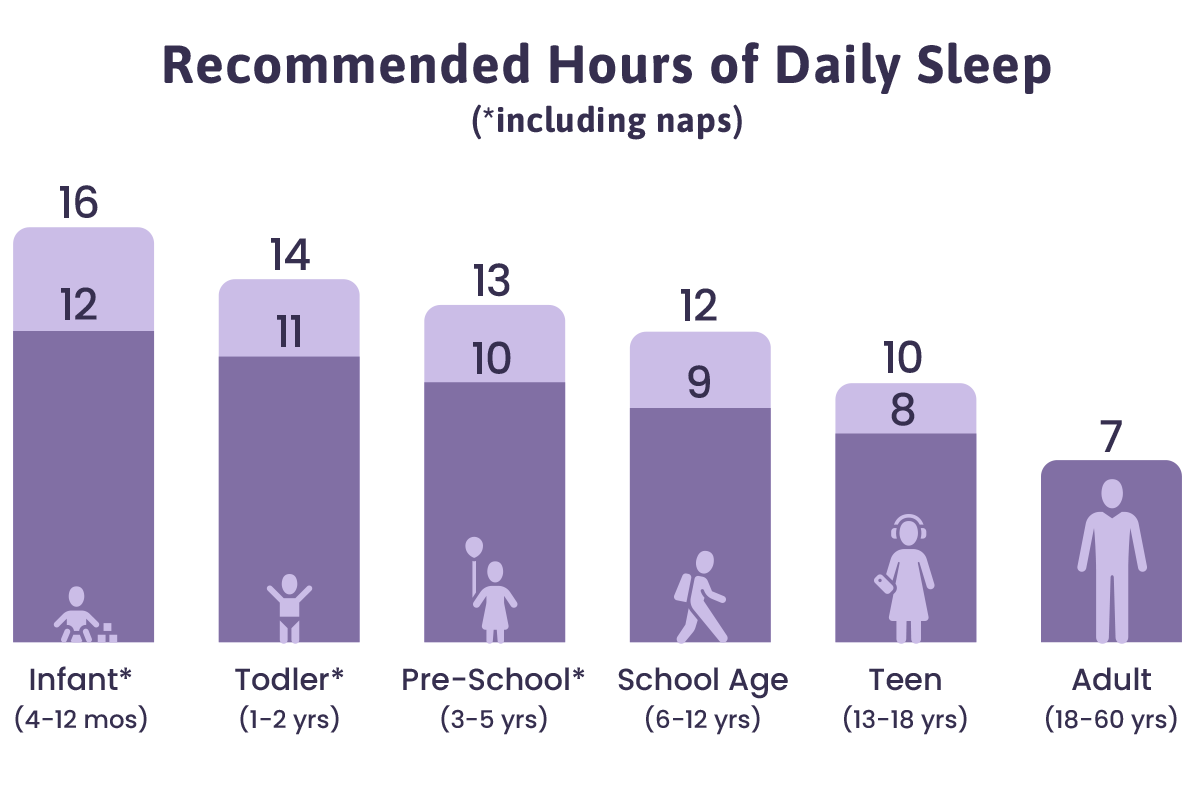Sleep – it’s something we all do, yet so many of us are left wondering if we’re doing it “right.” Among the various sleep stages, deep sleep has generated a fair amount of attention, and rightfully so. During this phase, our bodies undergo some of the most restorative processes. So, how much deep sleep do you need for optimal health? Let’s dive in.

What is Deep Sleep?
Deep sleep, often referred to as slow-wave sleep or delta sleep, is one of the stages of our sleep cycle. It’s characterized by slower brain waves and is the time when our body gets to work on repairing muscles, tissues, stimulating growth, and bolstering our immune system. It’s also the stage when most energy regeneration occurs, and essential hormones, like growth hormone, are released.
Why is Deep Sleep Important?
Here are some reasons why securing enough deep sleep is crucial:
- Physical Restoration: As mentioned, deep sleep is when our body does most of its repair work. From muscles worn out after a strenuous workout to tissues that need healing, deep sleep is when the magic happens.
- Mental Restoration: Memory consolidation occurs during this phase, which means the things you learned and experienced throughout the day get processed and stored.
- Energy Replenishment: Deep sleep ensures you wake up refreshed and ready to tackle the day. Without sufficient deep sleep, you might feel constantly drained or fatigued.
- Supports Growth and Development: Growth hormone, crucial for children and adolescents, is primarily secreted during deep sleep.

How Much Deep Sleep Do You Need by Age?
The amount of deep sleep an individual needs can vary based on age, lifestyle, and overall health. However, general guidelines suggest:
- Infants (0-3 months)
-
- Ideal: Up to 50% of their sleep can be deep sleep. This means if an infant sleeps for 14-17 hours (which is common), they might get 7-8.5 hours of deep sleep.
- Average: Most infants get close to the ideal amount, given the significant amount of sleep they require.
- Toddlers (1-2 years)
-
- Ideal: As they grow, the percentage of deep sleep decreases. Ideally, they should get around 25-30% of deep sleep. So, for a typical 11-14 hours of sleep, that’s roughly 2.75-4.2 hours of deep sleep.
- Average: Many toddlers can achieve the ideal amount, but external factors such as irregular sleeping patterns and disruptions might decrease this average.
- Children (3-12 years)
-
- Ideal: As children age, deep sleep might encompass 20-25% of total sleep. Given 9-12 hours of sleep, they should ideally get 1.8-3 hours of deep sleep.
- Average: Due to the increasing demands of school, extracurricular activities, and screen time, some children might fall short of the ideal amount, averaging closer to 20%.
- Teenagers (13-18 years)
-
- Ideal: Teenagers should still aim for 20% of deep sleep. For the recommended 8-10 hours of sleep, that’s 1.6-2 hours of deep sleep.
- Average: Academic pressures, social engagements, and a natural shift in circadian rhythm can lead many teenagers to fall short, often only achieving 10-15% deep sleep.
- Adults (18-65 years)
-
- Ideal: Roughly 20% of total sleep, or 1.5-2 hours out of an 8-hour sleep cycle.
- Average: With the hustle and bustle of adult life, many adults average between 10-20%. Stress, responsibilities, health conditions, and lifestyle habits play a significant role.
- Older Adults (65+ years)
-
- Ideal: The older population might experience decreased sleep efficiency. However, aiming for 15-20% deep sleep of their total sleep is still beneficial.
- Average: Many older adults might only achieve around 10-15% due to factors like health conditions, medications, and changes in sleep architecture.
Unfortunately, most adults lose deep sleep as a natural consequence of aging. By the time we reach our mid to late forties, we may have lost 60% to 70% of our deep sleep. The disparity between the ideal and average can also be attributed to reasons, including lifestyle, health, and environmental factors.
However, it’s crucial to note that everyone’s sleep needs are unique, and while these are guidelines, the most important thing is to feel rested and rejuvenated. If sleep disturbances persist or there’s a significant lack of deep sleep, consulting with a sleep specialist can be beneficial.
It’s essential to note that while deep sleep is incredibly important, all stages of sleep, including REM and the various non-REM stages, play their part in ensuring overall well-being.
How Can You Improve the Quality of Your Deep Sleep?
- Stick to a Routine: Going to bed and waking up at the same time every day can regulate your internal clock and improve the quality of your sleep.
- Create a Sleep-friendly Environment: Ensure your bedroom is dark, quiet, and cool. Invest in a comfortable mattress and pillows.
- Limit Screen Time: The blue light emitted by phones, tablets, and computers can interfere with melatonin production, a hormone responsible for regulating sleep.
- Watch Your Diet: Avoid caffeine and heavy meals before bedtime.
- Stay Active: Regular physical activity can help you fall asleep faster and enjoy a deeper sleep.
- Manage Stress: Techniques such as meditation, deep breathing exercises, and journaling can promote better sleep.
In conclusion, while deep sleep is a vital component of our nightly rest, it’s essential to focus on sleep quality as a whole. By understanding the significance of deep sleep and implementing strategies to improve sleep quality, you can pave the way for better mental, physical, and emotional health.
